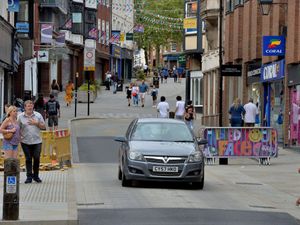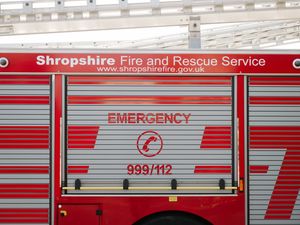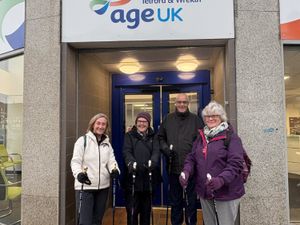Shropshire Council under fire over spending on traffic calming measures
Shropshire Council has been criticised by a transport expert for spending £1.4 million on road safety measures without assessing whether they would be effective or good value for money.

Professor John Whitelegg said it was “unacceptable” that the council had forked out so much money while failing to consider cheaper alternatives – including a blanket 20 miles per hour limit in built-up areas.
Figures he has obtained through a freedom of information request reveal that the amount spent on road safety schemes more than doubled from £315,000 in 2018/19 to £688,000 in 19/20, doubling again to £1.394m in 20/21.
Prof Whitelegg has voiced his concerns as a formal objection to the council’s latest accounts – and asked its external auditor Grant Thornton to publish a Public Interest Report (PIR) on the matter.
He said: “This expenditure was not assessed or evaluated or scrutinised to check whether or not it was likely to achieve its objectives, whether or not it was value for money and how it compared with well-documented alternatives that are lower cost and based on evidence do achieve the objective of reducing the speed of traffic.”
Prof Whitelegg argues the council’s decision to spend large sums of money on physical interventions – such as the four speed humps recently installed in Shrewsbury town centre at a cost of £233,000 – was “not based on evidence” and therefore “does not meet an acceptable standard of fiscal responsibility”.
He also said the council had not carried out before and after studies that could have informed future spending decisions.
“Shropshire Council has ignored this evidence and has made no effort to review the evidence of its own traffic calming interventions and spending over the last three years,” said Prof Whitelegg.
“It does not know if these large expenditures actually do achieve their stated objectives and it continues to spend large amounts of money on measures and interventions that are not reviewed to check whether or not they are effective.
“It does not consider a range of options that are available, many of which are a lower cost than traffic calming, to achieve the stated objective of controlling the speed of traffic.
“This is a fundamental failure to achieve value for money and to disburse funds in ways that are proven and effective in achieving objectives.”
Prof Whitelegg is involved in the Shropshire-wide 20’s Plenty campaign, which is calling for 20mph limits to be implemented in all residential areas, but said his objection to the accounts was not simply a request for a default 20mph policy to be adopted.
He said: “It is a request that the council adopts robust, transparent, evidence-based processes for scoping policy options and selecting the ‘best’ option based on effectiveness, science, evidence from the large number of councils that have already adopted this policy and value for money.
“When this has been done… then it will still be up to the council to choose its own approach including, if it wishes, the rejection of 20mph.
“It is unacceptable that decision-making and spending decisions should be based on a flawed process based on ignoring evidence, not evaluating outcomes against the stated objectives of the interventions, not considering alternatives to expensive traffic engineering and not considering value for money.”
A council spokesman said: “The request has been received, is being considered by the council and its external auditors, and an appropriate response will be shared with relevant parties in due course.”





